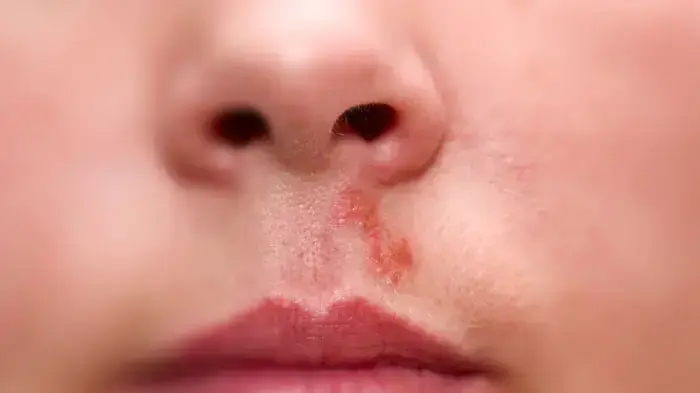Dr. Noa Bergman explains what causes Alzheimer's, is there a way to prevent the disease, and how do you treat someone who has already had the disease?
Herpes is a very unpleasant sore, it is itchy, painful and unsightly, but could the virus behind the common sore put people at a higher risk of Alzheimer's disease?
A long-term study of more than a thousand 70-year-old subjects in Sweden found that those exposed to herpes simplex virus type 1 (HSV-1) face a double risk of developing dementia.
The study was published in the Journal of Alzheimer's Disease.
Estimates today are that approximately 90% of the adult population in developing countries has been exposed to herpes type 1. In developed countries, the rate of exposure to the virus reaches approximately 50% of the population, whether they know it or not, that is, their immune system was exposed to the pathogen at some point in the past.
While many with oral herpes do not develop symptoms, others deal with flare-ups of inflammation and blisters around the mouth and lips from time to time.
Regardless of how the infection looks on the outside, the new results from Sweden suggest that HSV-1 may have far-reaching effects throughout the body.
"It's exciting that the results confirm previous studies," says epidemiologist Erika Westin of Uppsala University in Sweden.
"More and more evidence is emerging from studies that, like our findings, point to the herpes simplex virus as a risk factor for dementia."
A young woman with herpes on her lips/ShutterStock
The causes of dementia are probably one of the most studied mysteries in modern medical science.
Alzheimer's is the most common type of dementia and is often, but not always, marked by the accumulation of abnormal protein clumps in the brain.
For years, neuroscientists and drug researchers have focused on preventing these nodules to reduce cognitive decline without success.
As early as the 1990s, abnormal levels of HSV-1 DNA were found in the brains of Alzheimer's patients who had died.
Later, in 2008, researchers discovered HSV-1 DNA was present in 90 percent of the protein plaque in the postmortem brains of Alzheimer's patients.
Moreover, 72 percent of HSV-1 DNA in the brain was found within these plaques.
The findings suggested that the immune response to the herpes virus was closely related to cognitive decline.
And while some studies have found HSV-1 antibodies to be associated with dementia risk, others have found no such association.
Researchers from Uppsala University and Umeå University in Sweden followed younger patients for a longer period of time.
Of all 1,002 adult participants followed for 15 years, 82% were carriers of HSV-1 antibodies.
These patients were twice as likely to develop dementia during the study compared to those who did not carry HSV-1 antibodies.
"What is special about this particular study is that the participants are about the same age, which makes the results even more reliable since age differences, which are otherwise associated with the development of dementia, cannot confound the results," Westin says.
Westin and her colleagues are calling for randomized controlled trials to investigate whether treating herpes can help prevent or halt the onset of dementia.
However, applications for previous clinical trials on antivirals and dementia have been rejected by funding bodies.
More on the same topic:
dementia
Alzheimer's
herpes

